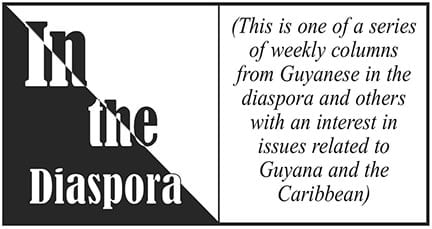The ‘Survey of Individuals Deprived of Liberty: Caribbean 2016-2019’ produced for the Inter-American Development Bank (IDB) across six Caribbean countries – including Guyana – highlights the conditions of prisons, the characteristics of inmates in prisons, the factors behind their incarceration, the judicial processes leading to their convictions, and inmates’ perspectives of re-entry into society. One theme that emerges across these aspects of Caribbean prison worlds is substance use, both prior to incarceration and within prison walls. For example, the study illustrates that individuals who use drugs and/or alcohol before committing a criminal offence have higher levels of recidivism than those who did not consume such substances. This observation suggests, as does the international literature on drug treatment programmes during custody, that substance misuse is a risk factor in criminal recidivism.
As our own research confirms, the use of alcohol, cannabis and other substances by inmates both before and during imprisonment in Guyana is real. We spoke to inmates who told us that taking drugs while inside prisons helps them to cope with the poor infrastructure and sanitary conditions around them. Some of our interviewees also spoke of prescribed medication such as Olanzipine given to those diagnosed with mental disorders. Others talked of fruit wine fermented in prison. Or how cannabis allows those inside “to relax, lie down, get some rest”. The recent IDB report states 24% of inmates in Guyana’s prison personally use alcohol or drugs, and 54% of inmates confirmed they see alcohol and drug use in prison. These findings were also confirmed in the previous 2017 IDB funded report on Guyana’s prisons.
In Guyana the use of alcohol and cannabis as coping mechanisms to deal with personal troubles and constrained freedoms, as well as for recreation and relaxation, have long histories. The colonial archives reveal plentiful examples where inmates brewed and drank alcohol, or smoked marijuana, in jails. This reflected broader society. In the nineteenth century, plantation workers drank rum and smoked cannabis to overcome the physical and emotional pains of their labour, and in forging spiritual and social relationships.
Attempts to regulate access to these substances were bound up with how plantation owners tried to control workers and how the colonial authorities dealt with social disorder, crime and mental health problems. Laws introduced in the 1870s to punish drunk and disorderly conduct were a direct response to workers’ strikes and riots in both British Guiana and Trinidad in the late 1860s. By calling for these legal changes, the plantation owners justified their increasingly repressive actions as they sought to dismiss those reluctant to work and avoid having to provide for their care. The increase in the charges for breaching immigration laws, and the establishment of prisons at Fellowship (1868) and Suddie (1875) specifically for migrant workers, demonstrates how substance use and its legal regulation were connected to the colonial authorities’ efforts to control and, sometimes, to criminalise unruly or resistant workers.
We therefore see how the use and control of substances in Guyana, but also more widely, are intrinsically tied to the history of empire and colonial exploitation. The reasons inmates provided for using substances today echo those given throughout history and during colonial times (e.g., self-medication, solidify bonds, relieving stress, hedonism, to help concentration and enhance an activity or feeling). The use of substances to cope – as a form of self-medication – has not really changed much over the last 200 years in Guyana or elsewhere, and this is true in the context of the contemporary prison.
In line with the IDB reports on substance use in Guyana’s prisons, our research has shown that the majority of the men in prison use cannabis and to a lesser extent alcohol, particularly home brewed alcohol – cushypen. Substances are often used not only to cope with prison conditions but also the pains experienced by being in prison (e.g., loss of relationships, liberty and autonomy). These can include the consequential pains induced by policies and practices (e.g. life sentences and being on remand for long periods). There was also some indication from the professionals/practitioners in Guyana that substance use, specifically cannabis, crack and/or the fermented alcohol, was connected to mental ill-health, particularly psychosis, although the exact relationship underpinning this connection requires further investigation and is at present unclear. What is clear, is that substance use in prison is clearly linked to violence, bullying, debts, mental-ill health, self-harm and suicide, all of which has a negative effect on the prison environment as well as the people living and the working inside the prison, creating and/or exacerbating an already harmful/challenging environment. These factors also undermine the men’s rehabilitation and future reintegration, which may continue to involve substance use.
In our previous op ed we explored the impact of colonial-era prison infrastructure on the mental health of inmates and officers, including how it can lead to self-medication as a coping strategy. Here, we find further legacies in the use and regulation of alcohol and drugs, and their impacts on inmate (and prison officer) well-being today. There are, once again, remarkable parallels between the past and the present. However, we now have much better means of treating substance abuse in prisons, where it is possible to reach vulnerable people, with complex needs involving addiction and/ or mental ill-health. Organisations like the Salvation Army have worked with inmates since the early 1900s, and continue to do so. Yet the question remains today, how can Guyana tackle this crisis in a way that is appropriate to medical knowledge and society in the 21st century.
The project is led by Professor Clare Anderson, Professor of History, at the University of Leicester. A project website can be found at this address https://mnsguyana.le.ac.uk/

 RSS Feed
RSS Feed